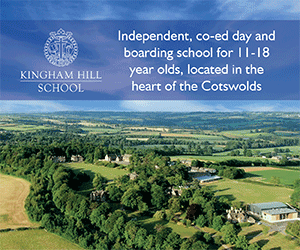Are You A Helicopter Parent
Is it a bird? Is it a plane? No, it’s a helicopter parent! Hovering over their children, these over-zealous parents are filling every available minute with supervised activity. They micromanage their child’s life and bail them out of every tricky situation. Is this perfect parenting or a recipe for disaster? isbi schools considers the implications of this intense parenting style. It’s very tempting, to shelter our children from every upset, take on their challenges and make decisions for them in case they get it wrong, but by doing this are we preparing them well for adult life? Does it really help them if we do their homework for them, shout at the referee on the sports field and sort out playground quarrels on their behalf?
Children actually need the freedom to sort out their own problems in order to develop their social, emotional and intellectual maturity. Children who are over-parented are more likely to be anxious, self-conscious, lack maturity, have weak social skills and be less open to new ideas, during their school years. If we rescue them from every emotional state whilst they are relatively protected how will they cope in adult life?
They can’t learn how to resolve conflict if they’ve never experienced it and if the old adage is true “we learn from our mistakes” then they need to be able to make the odd bad decision or wrong choice in order to learn how to make the right choices in the future. Helicopter parents always have a good excuse for hovering. Their children are too preoccupied, forgetful or just too busy, so they have no choice but to step in and sort everything out.
At what point are these children going to stop being disorganised and absent-minded though? At senior school? University? Or maybe when they start work? Studies in the USA have shown a marked increase in parental monitoring and involvement in new student admissions into colleges. This new generation of helicopter parented young adults are far less organised, focused and socially competent because they’ve never had to learn these skills.
They are also lacking in confidence, are less likely to take risks and can find decision-making difficult. We are often impressed by the selfless parent who dashes their children from horse riding to ballet and hockey to drama club every night of the week without having time to catch their breath; but constantly filling every second of our children’s time with meaningful activity may not be helpful. All children can benefit from some unscheduled free time. Does it hurt them to get bored? It actually appears to be good for imagination and initiative.
So if you want your child to be a confident adult who can navigate difficult situations, think for them self and not be crushed by every little failure or disappointment; stop the rotors and let your child out from under the shadow of your helicopter! Don’t always bail them out, encourage them to face problems and develop their own solutions.
Empower your child to be an independent, organised, resilient, socially and emotionally competent young person and they’ll take this through to adulthood. Grant them the freedom to explore the world and solve problems on their own and you’ll give them the gift of independence and self-esteem.






